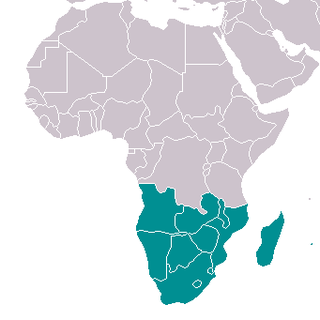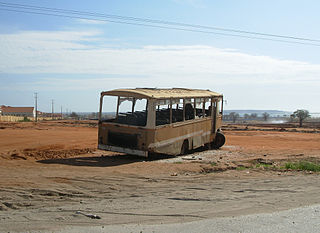United Nations Security Council Resolution 180, adopted on July 31, 1963, affirmed that Portugal claiming its overseas territories as part of metropolitan Portugal was contrary to the principles of the Charter. The Council deemed Portugal's actions and attitude as seriously disturbing to peace and security in Africa.
United Nations Security Council Resolution 197, adopted unanimously on October 30, 1964, after examining the application of the Republic of Zambia for membership in the United Nations, the Council recommended to the General Assembly that the Republic of Zambia be admitted.

United Nations Security Council Resolution 300, adopted unanimously on October 12, 1971, after supposed violations of Zambian air space by planes of the South African Air Force the Security Council reiterated its stance on sovereignty and territorial integrity and called on South Africa to respect Zambia's. The Council declared that in the event South Africa further violated Zambia's sovereignty it would meet again to examine the situation in accordance with the relevant provisions of United Nations Charter.
United Nations Security Council Resolution 326, adopted on February 2, 1973, concerned with provocative and aggressive acts committed by Rhodesia against Zambia and disturbed by the continued military intervention of South Africa in Rhodesia, the Council condemned all acts of provocation and harassment against Zambia.
United Nations Security Council Resolution 327, adopted on February 2, 1973, reaffirmed previous resolutions on the topic of Rhodesia and commended Zambia for its decision to immediately enforce sanctions. The United Nations plan to crush the Rhodesian government relied heavily on sanctions, Zambia had decided to enforce the sanctions when other nations chose not to despite the large impact the cessation of trade with Rhodesia would have on the Zambian economy. The Council decided to send the special mission established by resolution 326 to assess the needs of Zambia in maintaining alternate forms of communication and traffic, as most of it had flowed through Rhodesia in the past.
United Nations Security Council Resolution 328, adopted on March 10, 1973, after receiving a report from the Special Mission established under resolution 326 and reaffirming previous statements the Council encouraged the United Kingdom, as the administering power, to convene a national constitutional conference where the "genuine representatives of the people of Zimbabwe" could work out a settlement relating to the future of the country.
United Nations Security Council Resolution 329, adopted unanimously on March 10, 1973, recalled it request to make assistance to Zambia a priority after it risked damaging its economy to uphold resolution 327 against Rhodesia and appealed to all states for immediate technical, financial and material assistance. The Council requested the Secretary-General to coordinate all the United Nations' agencies in helping Zambia and asked the Economic and Social Council to consider the question of economic assistance to Zambia periodically.

United Nations Security Council Resolution 393, adopted on July 30, 1976, after a letter from a representative from Zambia, the Council condemned a recent attack by South Africa in Zambian territory, resulting in the destruction of property and loss of life. The resolution went on to express concern at South Africa's occupation and use of South West Africa as a base for attacking neighbouring African countries, and that the continuation of this would constitute a threat to international peace and security.

United Nations Security Council Resolution 424 was adopted unanimously on March 17, 1978; after hearing representations from Zambia, the Council expressed concern at unprovoked attacks against the country by the "illegal racist regime" in Southern Rhodesia, which resulted in deaths and destruction of property in Zambia. The Rhodesian Security Forces maintained that they had been attacking guerrilla bases in the country.

United Nations Security Council resolution 455, adopted on 23 November 1979, after taking note of representations from Zambia and recalling Resolution 424 (1978), the Council expressed concern and condemned the "illegal racist regime" in Southern Rhodesia for its "sustained pattern of violations aimed at destroying the economic infrastructure" of Zambia and causing a number of deaths.

United Nations Security Council resolution 466, adopted unanimously on 11 April 1980, after hearing representations from Zambia and recalling 455 (1979), the council condemned the continued and unprovoked attacks on Zambia by South Africa.

United Nations Security Council resolution 606 was adopted unanimously on 23 December 1987, after recalling Resolution 602 (1987) and noting the Secretary-General's report authorised by that resolution. The Council condemned South Africa for its continued occupation of southern parts of the People's Republic of Angola and for its delay in withdrawing its forces from the area.

United Nations Security Council resolution 816, adopted on 31 March 1993, after reaffirming resolutions 781 (1992), 786 (1992) concerning a ban on military flights over Bosnia and Herzegovina and recognising the current situation in the region, the council, acting under Chapter VII of the United Nations Charter, extended the ban to cover flights by all fixed-wing and rotary-wing aircraft over the country, and to use all measures necessary to ensure compliance with the ban.

United Nations Security Council resolution 903, adopted unanimously on 16 March 1994, after reaffirming Resolution 696 (1991) and all subsequent resolutions on Angola, the Council strengthened and extended the mandate of the United Nations Angola Verification Mission II until 31 May 1994.

United Nations Security Council resolution 922, adopted unanimously on 31 May 1994, after reaffirming Resolution 696 (1991) and all subsequent resolutions on Angola, the council discussed the peace process during the civil war and extended the mandate of the United Nations Angola Verification Mission II until 30 June 1994.

United Nations Security Council resolution 952, adopted unanimously on 27 October 1994, after reaffirming Resolution 696 (1991) and all subsequent resolutions on Angola, the Council discussed the implementation of a ceasefire in the country and extended the mandate of the United Nations Angola Verification Mission II until 8 December 1994.

United Nations Security Council resolution 1104, adopted unanimously on 8 April 1997, after recalling 808 (1993) and 827 (1993) and considering the nominations for Judges of the International Criminal Tribunal for the former Yugoslavia received by the Secretary-General Kofi Annan by 13 March 1997, the council established a list of candidates in accordance with Article 13 of the Statute of the International Tribunal to be forwarded to the General Assembly.

United Nations Security Council resolution 1340, adopted unanimously on 8 February 2001, after recalling resolutions 808 (1993), 827 (1993), 1166 (1998) and 1329 (2000), the Council forwarded a list of nominees for permanent judges at the International Criminal Tribunal for the former Yugoslavia (ICTY) to the General Assembly for consideration.

United Nations Security Council resolution 1471, adopted unanimously on 28 March 2003, after reaffirming all resolutions on the situation in Afghanistan, the Council extended the mandate of the United Nations Assistance Mission in Afghanistan (UNAMA) for an additional period of twelve months until 28 March 2004.
The Declaration on the Rights of Peasants is a United Nations General Assembly resolution on human rights with "universal understanding", adopted by the United Nations in 2018. The resolution was passed by a vote of 121-8, with 54 members abstaining.








